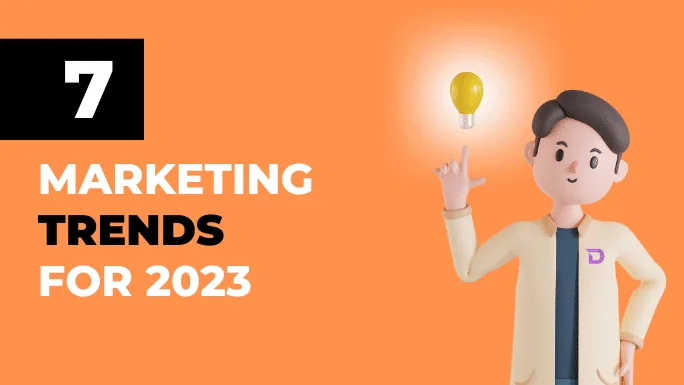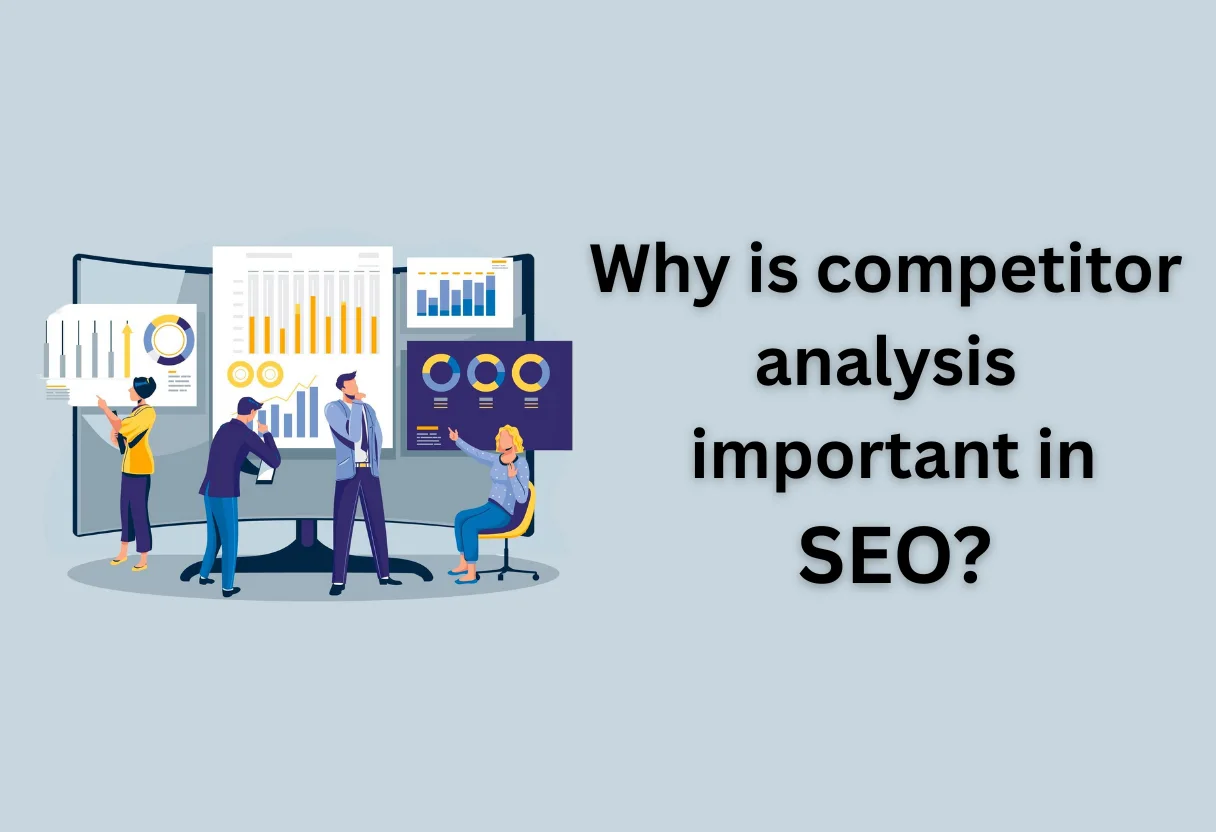In a relatively near future, marketing predictions for 2023 may seem very futuristic. It is safe to say that marketing as a field will experience a lot of growth by then. We are already seeing a lot of digital advancements in marketing like influencer marketing, customer experience optimization, artificial intelligence, etc. In this blog, we will discuss marketing trends 2023 that we can expect to see.
Marketing Predictions for 2023
As marketers, you must stay agile and innovative to stay ahead of the competition. In particular, keep a focus on personalization. This includes a strong emphasis on customer experience and a focus on creating a better customer experience through a variety of marketing strategies.
As a marketer, your attention should be on influencer marketing, mobile optimization, blogging, visual storytelling, social media marketing, email marketing, and push notifications. These strategies can help you take advantage of popular trends in marketing to attract new audiences and increase brand awareness.
In marketing, omnichannel marketing is a strategy or marketing mix that uses all available channels to reach customers. As the use of new technologies and services increases, many companies are now moving away from traditional multichannel brands offer omnichannel products. While there has been much discussion about omnichannel marketing trends , it’s still current trend in some areas around the world while it may not be so popular among other segments.
In addition to trends in marketing, look out for social commerce in the year 2023. Marketers will need to build trust in social shopping as social media becomes a platform for commerce. The growth of social media will also impact market seasonality with more consumers turning to social media during holidays and events like Valentine’s Day and Christmas.
What are marketing trends going into 2023?
In the year 2023, there are certain predicted marketing patterns that will continue, but we’re going to talk about the seven marketing prediction that we anticipate:
- Personalization and Data-Driven Marketing
- Expanding Your Reach with Influencer Marketing
- The Rise of Augmented Reality
- The Impact of AI and Automation
- Creative Storytelling for Maximum Engagement
- Customer trust and sustainability
- Constant monitoring is required as the volume of fake content grows
Personalization and Data-Driven Marketing
In 2023, personalization will become a key marketing trend as companies leverage geolocation, data technology, and customer behavior to target consumers with tailored messages and content.
As AI develops, businesses will be able to automate marketing campaigns to create personalized content and offers for customers. This will allow businesses to target customers with content that is relevant and valuable to them.
The use of email marketing will also grow in popularity as a tool for customer-centric marketing campaigns. With automation and personalization, businesses can create customer-centric marketing campaigns quickly and affordably.
Another trend expected to emerge in 2023 is the rise of social media marketing. As social media platforms continue to evolve, businesses will be able to target consumers with social media ads and content more effectively than ever before.
Furthermore, businesses will be able to optimize their digital marketing strategies by incorporating digital technologies such as automation and artificial intelligence.
Finally, marketing trends such as sustainability will become increasingly important as consumers become more conscious of the impact of their marketing activities on the environment.
Expanding Your Reach with Influencer Marketing
Influencer marketing relies on a third-party’s credibility and popularity to drive awareness and sales of a product or service. During the last few years, influencer marketing has gained a lot of popularity among marketers, as it is a cost-effective marketing strategy.
But due to its high ROI, influencer marketing has also become a target for many advertisers who want to get the best results. Still, social media marketers are advised to focus on three to five platforms to expand their reach and target audiences effectively. Some popular social media platform to look for your relevant influencers are: YouTube, TikTok, Instagram, Twittern, Facebook, LinkedIn. Content creators with good followers and known as industry experts in your niche can help you scale your game drastically.
Understanding the relevant demographics and target audience of each influencer is important in order to get desired ROI. When creating a campaign, brands should carefully select influencers for the collaboration as a varied audience can generate a greater ROI.
The Rise of Augmented Reality
Augmented Reality (AR) marketing is a hot topic in 2023 thanks to businesses’ interest in the immersive experience that AR provides. As a marketing channel, AR has the potential to create a more unified experience across all marketing channels and businesses should focus on centralizing information for a seamless omnichannel experience
In terms of content, businesses can go beyond static screens with AR content and immerse customers in a brand’s experience. Additionally, AR marketing allows customers to experience a product or experience in a way that cannot be replicated digitally, which is a valuable experience for consumers.
As the economy slows down, businesses should prioritize technical SEO efforts to yield good results. This includes investing in digital assets and ensuring that content is optimized for search engines to attain top rankings.
Generative AI will be a hot topic in 2023 as businesses look to tap into artificial intelligence’s potential. This technology has the ability to produce meaningful customer experiences without human intervention, but businesses must understand its strengths and limitations to optimize its use.
Also worth watching out for is conversational marketing. With chatbots serving as digital assistants, businesses are able to engage with customers through conversational mediums like chatbots and social media. This offers a great way of getting customer insights and feedback quickly, which can help businesses develop better products and services.
The Impact of AI and Automation
In a marketer’s toolbox of strategies, artificial intelligence (AI) is a vital part. It can be used to automate marketing processes and improve customer experience. Organizations are increasingly using automation tools to analyze customer behavior and trends, a factor that has a significant impact on marketing decisions. This has led to an evolution in the marketing industry towards a more customer-centric approach. AI is also helping organizations make more data-driven marketing decisions by identifying customer preferences, interests, and trends.
This year also promises a lot for marketing with a number of trends emerging. Generative AI will continue to gain traction as more and more organizations look at leveraging the power of AI for content marketing purposes. The year will also see increased focus on experience marketing as businesses build brand intimacy through digital platforms.
For small businesses, this often means adopting a more customer-focused approach that takes into account the needs of individual customers. In particular, these companies need to focus on building trust and delivering a great experience. By doing so, they can confidently compete against larger organizations.
Creative Storytelling for Maximum Engagement
Video content will remain an increasingly popular medium for storytelling in 2023. As a digital media, video content has a multitude of advantages over other media such as a high level of interactivity and retention, a wide reach and a low cost per view.
Businesses can use live video streaming to foster deeper connections with their customers, including hosting Q&As, interviews and webinars. As a marketing channel, it is flexible and measurable.
Storytelling should accurately and effectively communicate a business’s mission and values to build consumer trust and loyalty. A good story can help create a memorable experience that can result in increased brand awareness and customer loyalty.
Visual content such as product videos, infographics, user-generated content and interactive images will become more popular. These media provide valuable insights about a product or service and can help businesses to build trust with consumers.
Successful influencer partnerships can help to drive a business’s purpose. Businesses can partner with influencers who are capable of amplifying their message through social media platforms or news media. This way, they can reach a larger audience and promote their brand message effectively.
Customer trust and sustainability
According to a survey by market intelligence agency, customer trust is in a crisis because of consumers’ increasing distrust in marketing strategies.
Customer trust is a crucial part of marketing strategy as it is a driver for brand loyalty and customer satisfaction. A customer’s trust can make or break a marketer’s marketing efforts.
Customer trust and sustainability are interlinked. Consumers are showing a posture of prudence in their buying decisions due to economic uncertainty, indicating that they will be selective with their spending.
Younger customers have become highly motivated by social issues such as climate change, social justice, and sustainability. This has led them to focus more on the personalization of products and services, email marketing, artificial intelligence (AI), and the metaverse.
Email marketing has become cost-effective and efficient for marketers as well. Today, email marketing has become a viable marketing tool for brand awareness, customer engagement, and retargeting.
Constant monitoring is required as the volume of fake content grows
By 2027, 80% of marketing organizations will have a dedicated content authenticity function, according to a Gartner report.
As a result, marketers will need to constantly monitor the content they produce for authenticity and truthfulness.
The trend of increased exposure will continue in the coming years. Marketers will need to continually monitor their digital content for authenticity and truthfulness due to the rise in fake content.
The trend of experiential marketing will continue to grow in popularity. This marketing strategy involves creating a unique experience for a customer using digital media, such as social media and email marketing.
Another trend is the use of artificial intelligence (AI) technology to personalize content for customers. AI detects customer preferences and trends, allowing marketer’s to create content that is specifically tailored to their preferences and interests.
Another trend is blockchain technology in marketing. It is a digital ledger that securely records transactions across multiple platforms and organizations without the need for third-party verification or a central authority. This provides marketer’s with a secure digital record of their customer interactions and data trails, which can be easily verified and audited.
Finally, another trend is the use of virtual reality (VR) in marketing. In recent years, marketer’s have seen how immersive media can influence customer experience and behavior, leading them towards a more conversational marketing approach using VR devices.
This year alone has seen significant growth in many of these trends, showing no signs of slowing down as marketer’s look to create experiences that are authentic, engaging, and authentic for their target audiences.
Keeping Up with Digital Marketing Trends
The digital marketing trends are aplenty. From a year ago, marketers have to keep a keen eye on the changing trends to stay ahead of their competitors. Unfortunately, marketer’s job is not an easy one. Hence, staying updated with digital marketing trends is a must for any marketer. With marketing leading to digitalization and ever-growing consumerism, marketers are required to adapt from a traditional marketing approach to a digital marketing strategy.
One such digital marketing trend is voice search usage. Voice search is experiencing a significant growth as consumers prefer it over typing queries in search engines manually. While many marketer’s frown upon this change, it is a must-have in the digital marketing world. Besides, marketers should also keep a watch on other trends like social media advertising and influencer marketing. These trends will play a crucial role in seeding the brand awareness across the consumers’ minds.
Another trending aspect in digital marketing is the use of advanced technology like VR and IoT for storytelling purposes. This can help marketer’s connect values with their messaging easily and efficiently than before. Marketing teams also need to focus on streamlining processes with workflows to help them accomplish their goals more quickly and effectively. To stay informed about latest digital marketing trends, marketer should scour online resources, read books, listen to podcasts and go through user reviews on marketplaces to get quality insights and information about various trends and technologies that are emerging in the market now and in future years.
How will exposure to marketing change in 2023?
In 2023, marketing will continue to change at a rapid pace. Gone are the days when marketing strategies could be cavalier and brand managers can rely on experience or gut feelings to make decisions. Now, in order to stay competitive and credible with the market, marketing professionals will need to have a clear understanding of emerging trends and technologies. In addition, strategies will need to include predictions in order to drive real-world results.
As marketing becomes more scrutiny-heavy, attention is predicted to become the new currency in the market. This means that instead of traditional marketing strategies such as media buys or influencer campaigns, marketers will need to focus on strategies that provide a return on investment (ROI).
How will experience with marketing change in 2023?
Marketing in 2023 will be increasingly customer-centric. This means that companies will need to focus on building trust with their customers and regaining lost market share. That being said, there are a few essential marketing strategies that will be necessary in order to stay competitive:
1. Mobile optimization: In order to reach customers when and where they are, companies must design and deploy mobile-friendly websites and apps. Additionally, marketing campaigns and messages should be optimized for mobile devices.
2. Blogging: Businesses must continue publishing content that is interesting, informative, and persuasive. This helps to build a relationship with your target market and drives awareness about your brand.
3. Visual storytelling: Even if you don’t have a blog or any other type of content marketing strategy, you can still use visuals to tell your story. For example, infographics, videos, or Pinterest boards can be a great way to showcase your products or services.
4. Push notifications: Notifications are a powerful way to keep customers updated on what’s happening with your company and the latest news. They can also help you targeted users with timely information that they may be interested in.
5. Social commerce: Buying products and services online will be more common in 2023.
Conclusion
It is a marketing trend that is here to stay and will only continue to gain traction. If you want to be ahead of the curve, it’s vital that you adapt your strategies accordingly and keep a pulse on digital marketing trends. There’s a lot more to come in 2023, and we hope we get a lot smarter with artificial intelligence and automation. Any digital marketing trends that you think are shaping the future? Share them with us on social media!







